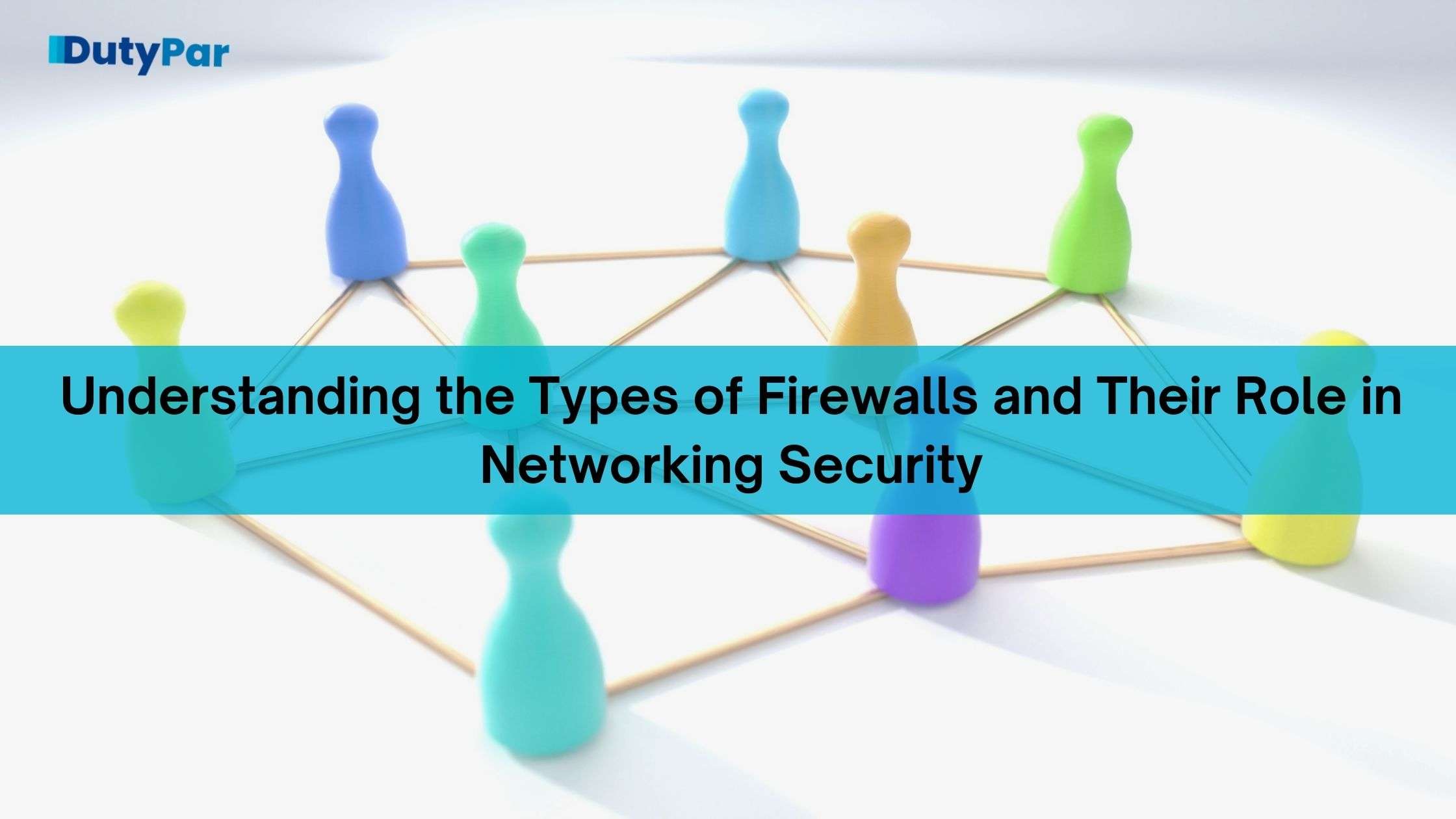This blog explains the different types of firewalls—packet filtering, stateful inspection, application, and next-generation firewalls—and their roles in securing networks against external threats. It highlights the importance of selecting the right firewall to ensure robust network security for businesses.

Table of Contents
Introduction
Network security is a crucial aspect of any business, whether it’s a small or large organization. Assuring the safety and security of data and networks is a top priority for businesses to safeguard against cyber-attacks. Firewalls play a crucial role in securing networks from unauthorized access, data theft, and malicious attacks.
In this article, we will discuss the different types of firewalls and their roles in networking security.
What is a firewall?
A firewall is a security device that monitors and controls incoming and outgoing network traffic based on predetermined security rules.
It acts as a barrier between a network and external threats such as hackers, viruses, and other malicious software.
Firewalls are essential to prevent unauthorized access to a network, providing a secure environment for data transfer and communication.
Types of Firewall:
Packet Filtering Firewall:
Packet filtering firewalls are the most basic type of firewall.
They inspect packets and filter them based on predetermined rules.
These rules determine which packets are allowed to pass through the firewall and which packets are blocked.
Packet filtering firewalls operate at the network layer (Layer 3) of the OSI model and can only inspect packets based on IP address, port number, and protocol.
They cannot inspect the contents of the packets. Packet filtering firewalls are simple to set up and are usually less expensive than other types of firewalls.
Stateful Inspection Firewall:
Stateful inspection firewalls, also known as dynamic packet filtering firewalls, operate at the transport layer (Layer 4) of the OSI model.
They not only inspect packets based on IP address, port number, and protocol but also check the state of the connection.
Stateful inspection firewalls keep track of the connections between hosts and only allow packets that are part of an established connection.
This helps prevent attacks that use spoofed IP addresses to bypass the firewall.
Application Firewall:
Application firewalls, also known as proxy firewalls, operate at the application layer (Layer 7) of the OSI model.
They can inspect the contents of packets and filter traffic based on the application-level data.
Application firewalls are used to secure web applications, email servers, and other network services.
They can also provide additional security features such as content filtering, intrusion prevention, and antivirus protection.
Next-Generation Firewall:
Next-generation firewalls (NGFW) are a more advanced type of firewall that combines the features of traditional firewalls, intrusion detection and prevention systems (IDS/IPS), and application firewalls.
NGFWs are designed to provide more granular control over network traffic and are capable of deep packet inspection.
They can also integrate with other security technologies, such as VPNs and endpoint protection, to provide a more comprehensive security solution.
Role of the Firewall in Network Security:
Firewalls play a crucial role in securing networks from external threats.
They provide a secure environment for data transfer and communication and prevent unauthorized access to a network.
Firewalls can also help prevent data theft, virus infections, and other malicious attacks.
They provide a first line of defense against cyber attacks, allowing businesses to focus on their core operations without worrying about the security of their networks.
Conclusion
Firewalls are essential to secure networks from external threats. Understanding the different types of firewalls and their roles in networking security can help businesses choose the right firewall to protect their networks.
While packet filtering firewalls are the most basic type of firewall, stateful inspection firewalls, application firewalls, and next-generation firewalls provide more advanced security features. Businesses must choose the right firewall to suit their security needs and ensure the safety and security of their networks.





